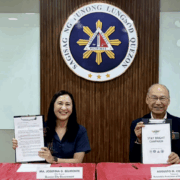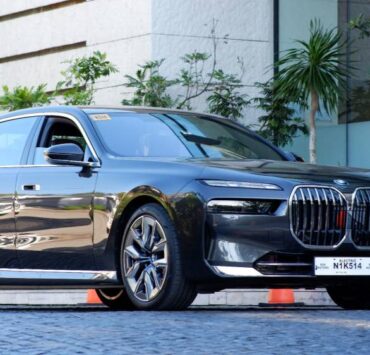MOTORSPORTS FOR ALL
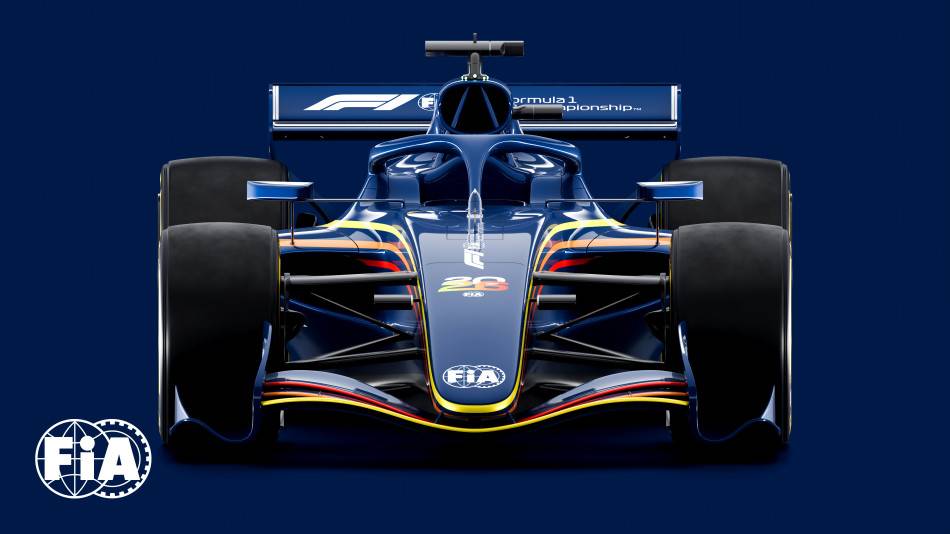
Car racing has long been known as a “rich man’s sport” – but not for long, if Federation Internationale de l’Automobile (FIA) President Mohammed Ben Sulayem has his way.
“I suffered when I was young,” he told Inquirer Mobility in an exclusive interview at the sidelines of the FIA Region II Roundtable in Cebu.
“I needed to prove myself and in proving yourself, you had to have a vehicle,” Sulayem added. “And having a vehicle cost a lot of money – I couldn’t afford what the big teams had. So would I allow other drivers to suffer like I did? No!”
Sulayem made his name as 14-time winner of the Middle East Rally Championship, racing for teams like Toyota, Ford and Subaru. And since he became FIA President in December 2021, he has been determined to burst the ballooning cost of motorsports around the world, saying that it’s the only way he can succeed in the growing the sport.
“I cannot go back and undo the past decades of maybe not looking into it in this way,” he said. “Many of our championships mushroomed – I remember some of the cars that are homologated started at 150,000 Euros (around P9 million) and we allowed it to go to that. And who benefited? It’s the manufacturers.”
Breaking the monopoly
Part of his strategy in achieving this is by opening up the sport to more suppliers and manufacturers.
“Without mentioning names, I saw very select companies when it comes to suppliers,” he said. “So I said, ‘I want to see the rest of the world and we will not ignore or isolate anyone. Just bring all of them so that they could supply seats, rollbars, helmets, providing they are up to the standard.’”
Sulayem also slammed some of the unfair and illogical reasons for the FIA’s homologation of racing equipment, especially with the approval for many items expiring after just a few years.
“We also need to re-homologate the cars, the safety equipment, the fuel tanks, the roll cages, the seatbelts, all of this and then you come three years up, five years up,” he said. “No!”
“Is the homologation because of deterioration or because we make the companies reap benefits?” Sulayem added. “I look at homologation for some parts – the FIA maybe makes one and a half Euros (around P93) and the manufacturer makes hundreds of thousands or millions! We own the sport. We should also be subsidizing it. We should be making it cheaper.”
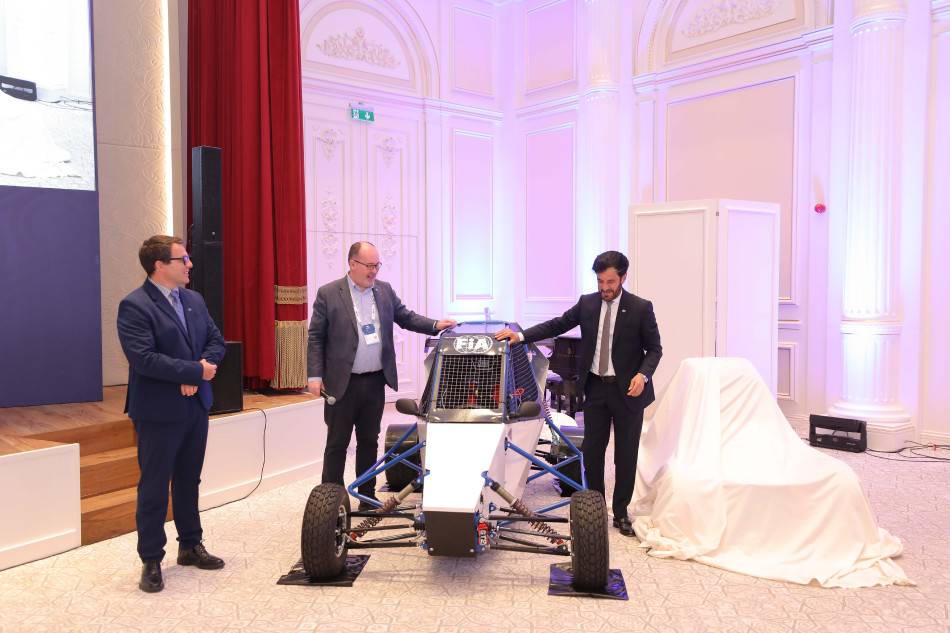
Free blueprints
Sulayem said another way that the FIA is helping bring racing costs down is by providing free blueprints to its National Sporting Authorities, which include the Automobile Association of the Philippines.
“You can use your own materials, you can use your own people and expertise, and you can use whatever engine you want, provided that you stick to the blueprint and the safety regulations,” he said. “So what does that mean? A drop in shipping, taxation and labor costs, so this is an achievement.”
Case in point is the Affordable Cross Car that debuted at the FIA Conference in Uzbekistan last June 2024. Positioned as astarting point for dirt events, a Level 1 car costs just 5,000 Euros (around P310,000), while a Level 2 car is 10,000 Euros (around P620,000).
“It took us over two years to make a car that is legally allowed and one-third of the price,” he said. “Who can afford a Cross Car for 30,000 Euros (around P1.8 million)? And then the monopoly that you have this car from Europe, this car from this manufacturer – it’s over.”
Reforming karting
The FIA President is likewise following the same track with karting, having long-voiced his opposition to the hundreds of thousands of Euros that drivers have to spend each year to compete.
“We started tendering parts from other companies – it is much more accessible to more countries,” he said. “Before, it was restrictive when it comes to tenders. But now, we are broadening our reach, which will make karting more competitive and safer.”
Sulayem also highlighted the importance of the discipline in forming the next generation of top-tier drivers.
“The rules of karting have been neglected because people look at it as ‘just’ karting,” he said. “No! If you look at the Formula 1 drivers, they came from that. And we’re going to take care of it. When it comes to safety, it’s not only the cost – we are responsible and we will make it safer for the youngsters.”
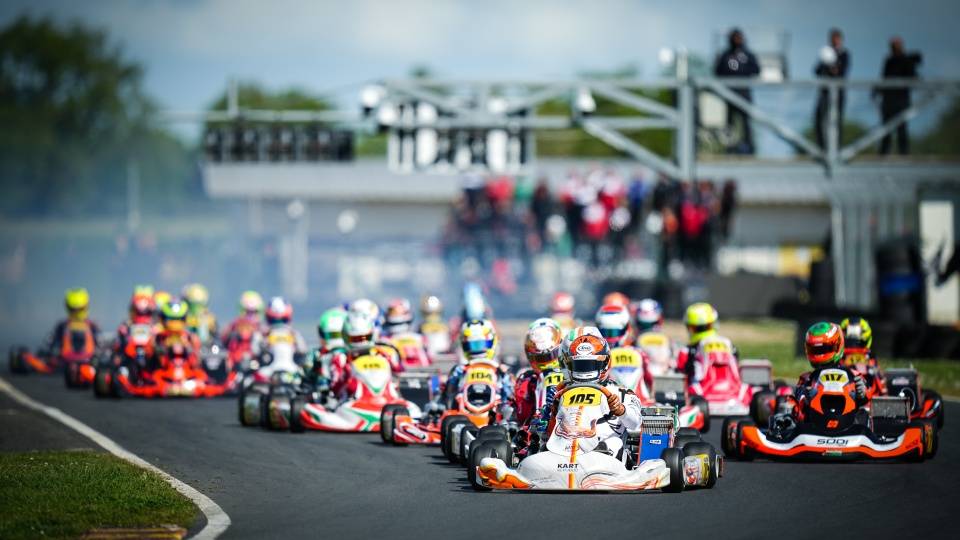
The best made better
Sulayem said the new rules on limiting motorsport costs will not tarnish the prestige of events like Formula 1.
“What we are talking about is the affordability and accessibility when it comes to homologation in rallying and circuit racing,” he said. “Formula 1 will never be touched. Formula 1 will only need the best and that is where it can be afforded.”
Nonetheless, he stressed the importance of maintaining F1’s cost cap to keep the competition fair and exciting. From 2023 to 2025, teams are not allowed to spend beyond $135 million (around P7.6 billion) per season.
“At one stage, some of the teams were spending over $650 million (around P36.7 billion),” he said. “Look at Formula 1 now – you see four teams fighting now. You see Red Bull, McLaren, Ferrari and Mercedes. But then, you see the others are coming closer.”
“You remove the cost cap and the first thing that is affected would be the privateer teams,” Sulayem added. “Are we going to remove the best materials when it comes to Formula 1? No!But we can restrict the waste – that’s what we are limiting when it comes to the cost cap.”
Motorsport back in the Olympics?
The FIA President also noted the organization’s interest in taking in the part in the Olympics, where motorsport had twice been a discipline.
“I believe youth in electric karting is the right discipline that we are pushing and hopefully it will be,” he said.
Nonetheless, Sulayem said it won’t be such a big deal if car racing is not part of the prestigious international sporting event.
“Because the FIA is a big deal,” he said. “We have a big base of fans and interest, as you can see with Formula 1 and other races. We will push for it – it will be prestigious, but if it doesn’t happen, it doesn’t.”
Sulayem added that the 120-year-old federation, composed of over 80 million members worldwide, has its own version of the Olympics – the FIA Motorsport Games.
“We have so many disciplines together and we have a rotation every two years,” he said. “We have the Asian Motorsport Games here. Joining the Olympics is something good to have, but we will not stop everything just to have it.”
Let’s hope these changes will make racing around the world viable not just for rich men.













